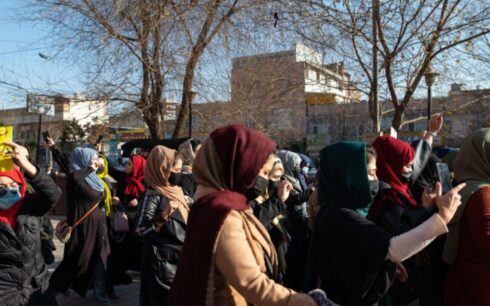KABUL — Two years have passed since the Taliban imposed a sweeping ban on women working in non-governmental organizations (NGOs), a decree that has left many families grappling with poverty and despair. The restriction, issued by the Taliban’s Ministry of Economy in December 2022, barred thousands of women from their jobs and severed a critical lifeline for households across Afghanistan.
For women like Zeenat, the ban has been catastrophic. Once the sole providers for their seven-member family, she and her sister lost their NGO jobs following the decree. “My sister and I were the only ones earning to support our five siblings and sick parents,” Zeenat, a resident of Farah province, said. “We worked hard for years, studied, and tried to rise above poverty. But when we were dismissed, everything fell apart. Now, with our parents ill and no income, we suffer endlessly. We don’t even know how to provide for ourselves.”
Zeenat is one of thousands of Afghan women who were abruptly forced out of the workforce, many of whom had served as the primary earners for their families. The economic impact has been devastating, particularly for female-led households. Najla, another resident of Farah, echoed Zeenat’s frustration.
“For two years, I’ve been unemployed and battling severe economic hardship,” she said. “Despite being young, educated, and capable, we’re confined to our homes. We have no choice but to endure this suffering.”
The ban, coupled with restrictions on education for women and girls, has drawn widespread international condemnation and amplified fears of a worsening humanitarian crisis in Afghanistan.
The United States has been among the most vocal critics of the Taliban’s policies. Secretary of State Antony Blinken recently called on the Taliban to reverse all decrees limiting women’s rights, expressing grave concern over the continued marginalization of women and girls.
Rina Amiri, the U.S. special envoy for Afghan women, girls, and human rights, warned that barring women from work and education could plunge Afghanistan further into darkness. “The exclusion of women undermines the country’s prospects for recovery and progress,” Amiri said.
For many Afghan women, the Taliban’s restrictions represent more than economic hardship; they symbolize a betrayal of the hard-won progress achieved in the two decades before the Taliban’s return to power. Women who invested years in education and professional growth now find themselves sidelined, with little hope for change under the current regime.





